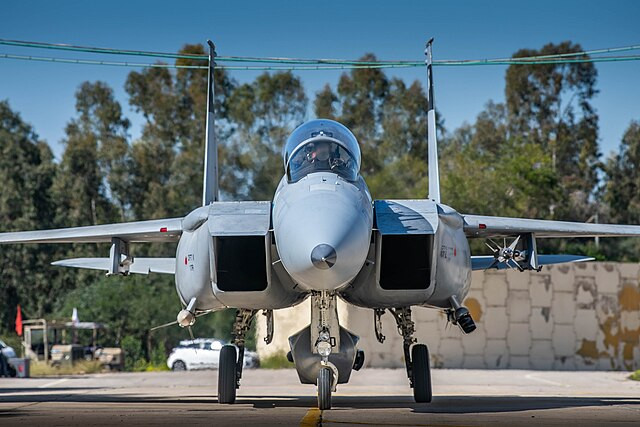Israel's recent airstrike on Iran has severely damaged the country's ballistic missile production capabilities, according to Israeli and U.S. officials. The operation, carried out with U.S. coordination, targeted key components of Iran's missile production infrastructure, delivering a significant blow to Tehran's ability to manufacture long-range ballistic missiles. The strike, which occurred in early October, focused on critical equipment used to produce solid-fuel missiles, which make up a substantial portion of Iran's missile arsenal.
According to Israeli sources, the strike specifically targeted 12 "planetary mixers," highly specialized machines used to create solid fuel for missiles. These mixers are essential for producing missiles like the Kheibar and Qasem, which are known for their precision and resilience. The destruction of these machines means that Iran will likely struggle to replenish its missile stockpile in the near term, a situation that could persist for up to two years while Iran works to rebuild the facility. The inability to produce new missiles not only weakens Iran's direct military capabilities but also hampers its ability to supply ballistic missiles to its regional allies, including Hezbollah and the Houthis.
The Israeli strike did more than just target missile production equipment. Four S-300 air defense batteries, strategically positioned to protect Tehran and other critical sites, were also hit. This additional blow further compromises Iran's ability to defend its military infrastructure, including missile and drone production facilities. While the Iranian military downplayed the damage, claiming that its air defense systems were already being repaired, Israeli officials maintain that the strike significantly weakened Iran's defensive posture. The attack was launched from both Syrian and Iraqi airspace, with some strikes occurring near Iran's border with Iraq, highlighting the operational complexity and reach of Israel's military capabilities.
A senior U.S. official confirmed that the strike dealt a severe setback to Iran's missile production, making it difficult for Tehran to replenish its own missile stockpile and assist its proxies in the region. The strike came in response to missile attacks on Israel earlier this month, with Israeli officials describing the operation as a necessary step to neutralize Iran's strategic missile capabilities. The U.S. played a key role in the operation by urging Israel to focus on military targets related to missile production rather than broader targets like nuclear or oil infrastructure, ensuring the strike remained a calculated military response.
In addition to targeting missile production sites, Israeli forces also carried out what was described as a "symbolic" strike on a facility in Parchin, a site previously linked to Iran's nuclear weapons research and development. This part of the operation sent a clear message to Tehran that Israel retains the capability and willingness to strike at the heart of Iran's most sensitive military projects.
Israeli officials have emphasized that the strike not only cripples Iran's missile production for the foreseeable future but also serves as a deterrent against further aggression. "With the added damage to Iran's air defense systems, the message is clear," said an Israeli official familiar with the operation. He added that any Iranian retaliation could invite an even stronger response from Israel, particularly now that Iran's defensive capabilities have been compromised.
The operation received unanimous approval from Israel's Security Cabinet in a phone meeting, with National Security Minister Itamar Ben-Gvir calling it a necessary first step in countering the growing threat posed by Iran. "This strike is an opening move against Iran's strategic assets," Ben-Gvir stated, underscoring the significance of the operation in Israel's broader security strategy. He also hinted that this would not be the last time Israel targets Iran's military infrastructure, especially if the threat persists.
Despite the severity of the damage, Iran has downplayed the impact of the strikes, with its military issuing a statement that focused on radar systems suffering "limited damages" and promising repairs. However, Tehran avoided directly acknowledging the damage to its missile production facilities, likely aware of the long-term implications this strike will have on its military capabilities. Iran's leadership is now facing a challenging reality, with its ballistic missile program set back significantly and its air defenses weakened.
The strike has raised concerns across the region, with Qatar's prime minister reaching out to Iran's foreign minister, urging restraint and caution in the face of escalating tensions. The Qatari government expressed its concerns that further strikes could destabilize the already volatile region and called for diplomatic efforts to ease tensions.
President Biden addressed the strike, confirming that it was limited to military targets and expressing hope that it would mark the end of the exchange of hostilities between Israel and Iran. He convened a call with Vice President Kamala Harris and top national security officials to review the situation in the Middle East. The U.S. has since emphasized the need to protect American forces stationed in the region from any potential retaliation by Iran or its proxies.




